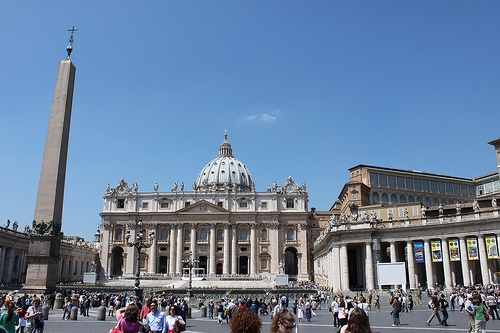
Pope Francis addressed the church at the 60th anniversary of the Second Vatican Council. Quoting Jesus Christ, he said, "Do you love Me? Feed My sheep" in the homily for the opening. He then proceeded to say that the creation of the council was a response of the church to the question of Jesus.
In his homily, he added that the mission of the council is to examine the church and to reflect as a way to rekindle the church's love for Jesus Christ. He also pleaded for the church to overcome polarization and preserve the communion.
Three Ways to Learn from the Council
Pope Francis started by warning people of looking at the church in their own point of view, condemning progressivism and traditionalism. He said that it should be important to restore the church to its essential roots to be "madly in love with its Lord and with all the men and the women whom He loves."
The second way, the Pope talked about how the church should look around the Church without looking down on others. He added that this way, the church would follow God's approach of seeking the lost sheep and leading them back to God.
Lastly, the pope said that God wants the church to "see the whole," adding that the Church should serve everyone and avoid taking sides.
Concluding the homily, he called for unity within the church to save it from all forms of polarization, calling it the devil's handiwork.
Read Also: Bible Study Topic Ideas to Make Every Session More Exciting and Interesting
Second Vatican Council
According to the Vatican News, it was Pope St. John XXIII who inaugurated the Second Vatican Ecumenical Council in a 37-minute address on 11 October 1962 at the St. Peter's Square. It added that there was a massive crowd of people during the address and that it included 2,449 bishops.
In his words, the late Pope said, "to bear witness to the face of a Church "the loving mother of all, benign, patient, full of mercy and goodness.
According to Brittanica, the council is also called Vatican II and was formed to provide spiritual renewal to those who separated from Rome.
One of the most notable of the council was when it promulgated decrees detailing the pastoral duties of bishops, ecumenism, priesthood education, the apostolate of the laity, and the media of social communication, among others.
Pope Francis
Born Jorge Mario Bergoglio, Pope Francis is the current leader of the Roman Catholic Church. According to Brittanica, he came to the position after the resignation of Pope Benedict XVI on February 2013.
The Pope was elected on the fifth ballot and chose the name Francis, in honor of St. Francis of Assisi and St. Francis Xavier.
During his first public mass, the pope called for spiritual renewal and for the church to turn its attention to the "plight of the poor." He also condemned forces that turn away the church from ministry.
Over the years, the Pope has talked about matters such as homosexuality, abortion, and contraceptives. However, the Pope reiterated the stance of the church against same-sex marriage and the opposition of the church to abortion.
Related Article: President Bart Barber of Southern Baptist Convention Talks About Denomination Scandal and More












